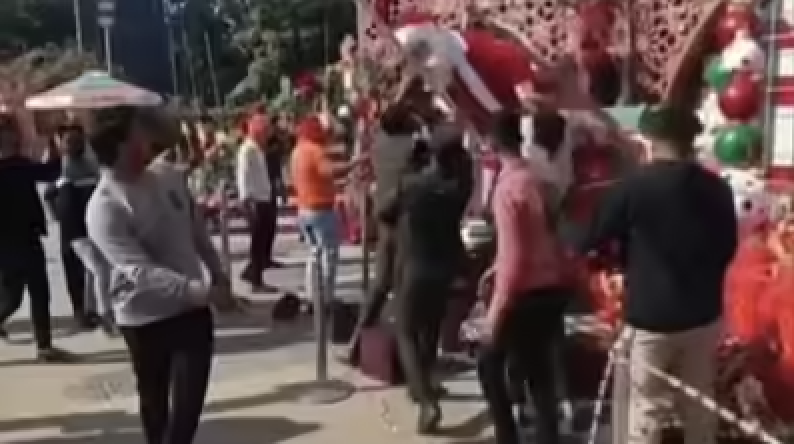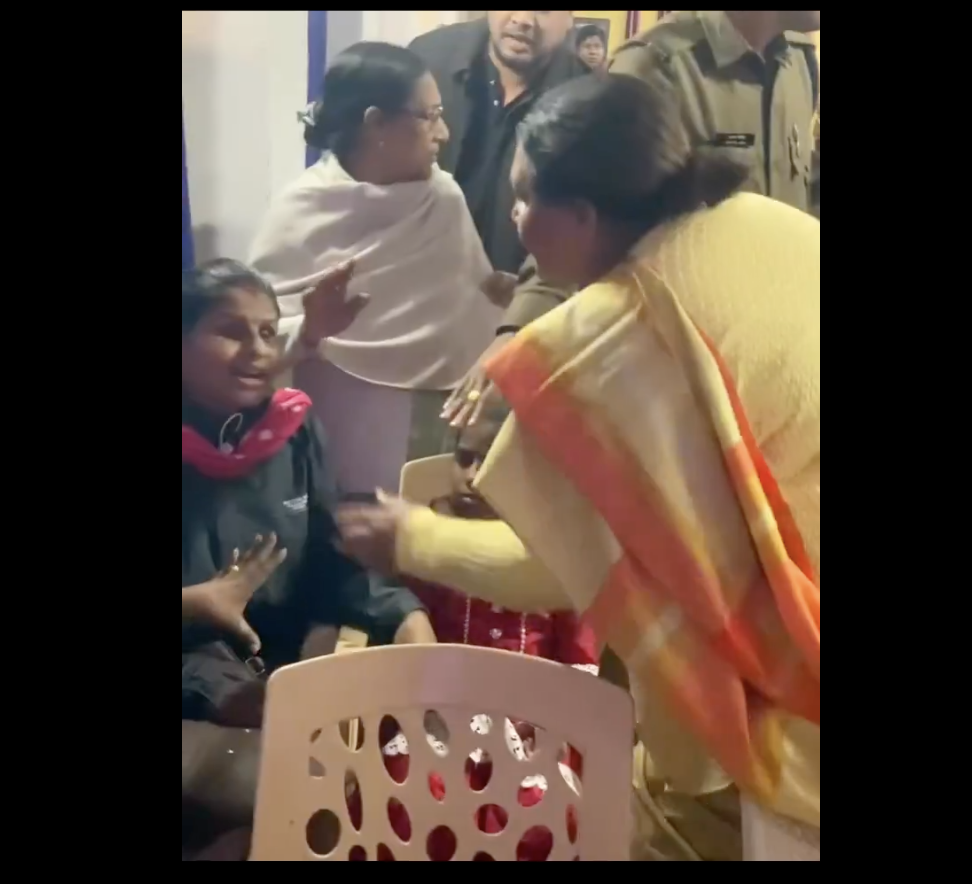The idea ‘instant’ justice is immensely popular, and its acceptance even higher if the perceived crime is allegedly committed by a Muslim, Dalit, Christian or tribal.

On Friday, a 50-year-old man, accused of child lifting, was killed by a mob in the Dhanbad district of Jharkhand. Just three days before this incident, on Tuesday, six people – three from Jharkhand and three from Uttar Pradesh – were mercilessly beaten by separate mobs on the suspicion of being child-lifters in Jharkhand’s Koderma district.
On the same day, an unidentified man in his 40s was thrashed by yet another mob in Ramgarh district on the suspicion of child lifting. The man succumbed to his injuries while being taken to a hospital in Ranchi.
These events came despite the fact that a few months ago, Jharkhand chief minister Raghubar Das had asserted that “mob lynching or other crimes and anarchy won’t be tolerated” in the state. According to media reports, more than 20 cases of mob lynching have been reported in the last three years across the state, in which more than a dozen people have been killed.
The reasons for these incidents range from allegations of beef consumption or transportation to the practice of witchcraft and child-lifting. What is even more worrisome is that these cases are not limited to Jharkhand alone.
Multiple cases of mob lynchings have been registered in Bihar, UP, Rajasthan, Madhya Pradesh. Several cases have also been reported in the south Indian states of Karnataka, Telangana and Kerala. In other words, mob lynching has almost become a national phenomenon.
Meanwhile, some state governments have proposed initiatives to enact specific laws to counter lynchings. In August, the Rajasthan assembly passed an anti-lynching bill with provisions for life imprisonment and a fine ranging from Rs 1-5 lakhs in cases where mob violence lead to a victim’s death.
Similarly, in July, the State Law Commission of UP recommended jail terms ranging from seven years to life imprisonment for those convicted for mob lynching. In its draft legislation, the commission also recommended, “up to three-year term for dereliction of duty by a police officer or a district magistrate.”
The commission, in its 128-page report, cited various cases of lynching in the state and recommended the immediate enactment of legislation as per recommendations made by the Supreme Court in 2018.
In July 2018, the Supreme Court passed directives urging the parliament to enact a law to deal with the crime that “threatens rule of law and the country’s social fabric.” It also came up with an 11-point prescription, which included state governments designating a nodal officer for taking measures to prevent incidents of mob violence and lynching.
In July, the apex court issued notices to the Centre and several state governments which had failed to comply with the judgement. While the implementation of guidelines is one of the reasons for the continuing cases of mob lynchings, what is often not addressed is how the police and society generally view these incidents.
A recent report by Delhi-based NGO Common Cause and CSDS on policing in India provided a vital clue about why incidents of mob lynching continue to take place despite the Supreme Court’s intervention. According to the report, “35% of police personnel interviewed for the survey think it is natural for a mob to punish the “culprit” in cases of cow slaughter, and 43% think it is natural for a mob to punish someone accused of rape.”
If such an overwhelming number of police personnel think that mob lynching is a ‘natural’ act for certain crimes, its not hard to assume why they would not try to prevent it or act against it.
This also explains why – as revealed by a report published in 2017 – the police registered cases against the victims and survivors of mob lynchings in 30% of the cases, and why, in 5% of the attacks, no report of the attackers being arrested was recorded.

The lynching of Pehlu Khan in Rajasthan serves as a classic example. In this case, the state police filed a chargesheet for cow smuggling against the deceased who was lynched by a mob of self-styled gau rakshaks – who were eventually acquitted – in Alwar for transporting cattle in 2017.
Another important aspect explaining why mob lynching incidents continue to take place is because as a society, the idea of the so-called form of ‘instant’ justice is immensely popular. This means that society feels duty-bound to intervene in matters – without even understanding the issue – as rightly pointed by psychologist and Supreme Court advocate Anuja Trehan Kapur.
According to Kapur, “Lynching happens when a mob gets together and they feel that they have a responsibility towards society and that the police or any administrative body can’t do justice to that responsibility.”
Moreover, given the state of the police and judiciary in the country, there is a wide-ranging perception that ‘culprits’ go unpunished, and that there is a chance that the accused in heinous crimes like rape, child lifting and cow-slaughter will go scot-free.
Furthermore, an analysis of several cases clearly shows that there is a higher level of acceptance of such so-called forms of justice if the perceived crime is allegedly committed by a Muslim, Dalit, Christian or tribal. As a study published in EPW noted, the discrimination faced by Muslims and Dalits “continue to blight the very institutions designed to create a fairer society.”
As per Hate Crime Watch, a FactChecker.in database, Muslims, who constitute “14% of India’s population, were victims in 60% of hate crimes; Christians, 2% of the population, in 14% cases; and Hindus, 79.8% of the population, in 14% cases.”
Moreover, the Common Cause and CSDS study also revealed that “50% cops feel Muslims (are) naturally prone to crime.”
Hence, until and unless there is a realisation, coupled with accountability, that punishing the culprit, no matter how grave and heinous the alleged crime, is not the duty of the citizens, let alone the mob, there won’t be any pause in cases of lynchings.
In fact, people have to understand that their act of providing ‘instant justice’ is nothing but in itself a serious crime. And a crime cannot be countered by another.
This story first appeared on TheWire.in here.






